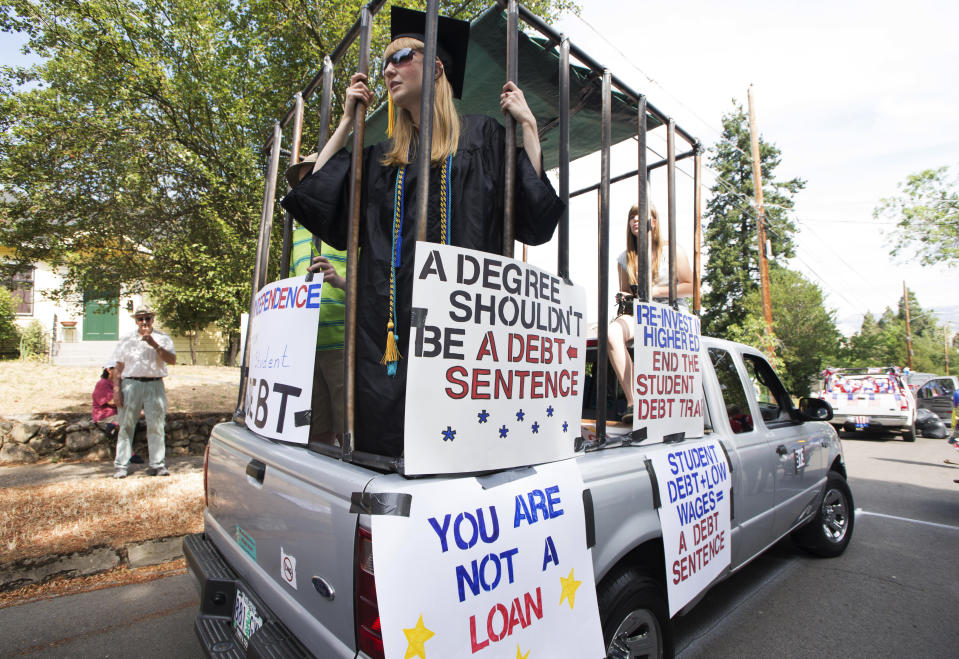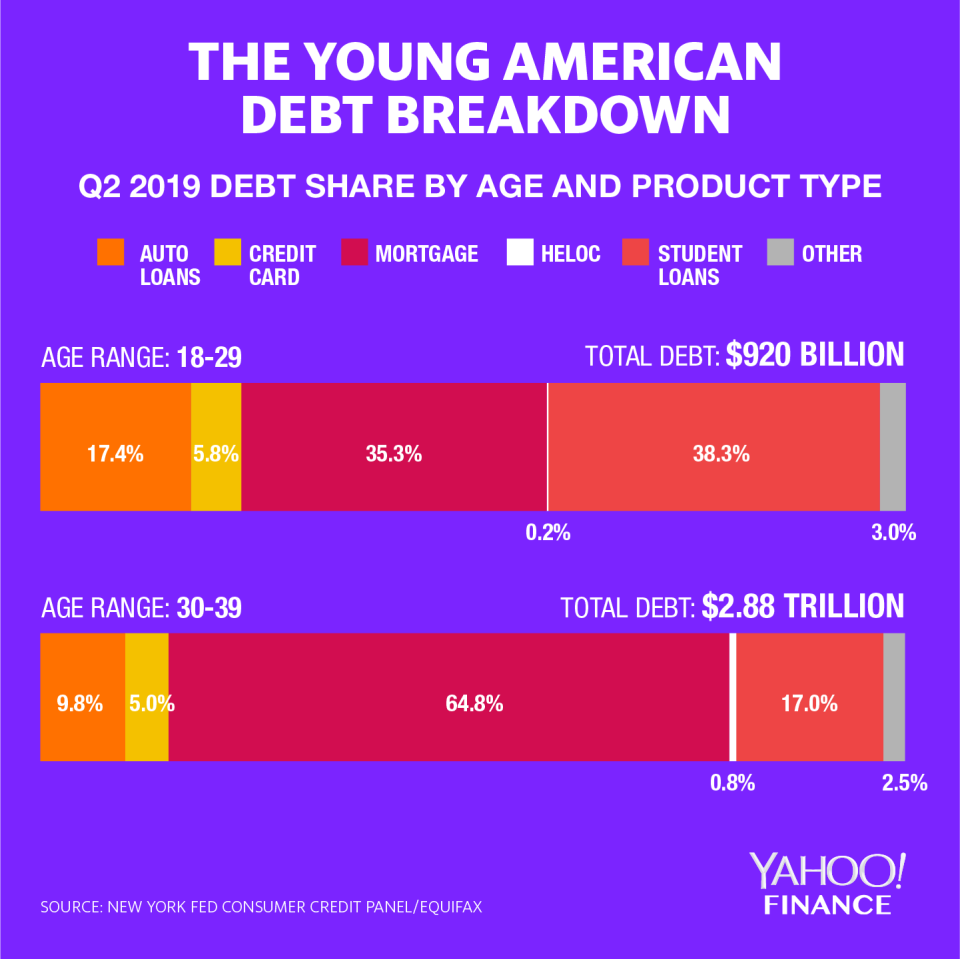'The power of this is massive': Student debt help could be on the way with new bill
With a $1.5 trillion student debt crisis at hand, some employers are offering to contribute to their workers’ loan repayments to help alleviate the burden.
But there’s a snag: taxes. When an employee spends their own money on education, their company can reimburse them tax-free, thanks to Section 127 of the federal tax code. And when an employee has student loans and the company offers to repay a portion of it, those dollars are treated as taxable income.
However, Congress is trying to fix that.
The “Employer Participation in Repayment Act,” which is currently working its way through lawmakers in the House and Senate, hopes to expand the existing tax-free assistance program “to allow employers to contribute tax-free dollars towards their employees’ student loans.”
David Klein, CEO of New York-based student loan startup CommonBond, asserted to Yahoo Finance that “the power of this is massive.”
The one-page summary of the bill states: “Modernizing the program to better meet the needs of today’s workers would help individuals pay down their student loans and serve as a recruitment and retention tool for younger employees who are typically not large consumers of health care, retirement, and insurance benefits.”

Klein has been working with several companies — from Fidelity Investments to Justworks — to push several congressmen to sponsor the bill and told Yahoo Finance that there was sufficient momentum for this bill to truly take off.
So far, 8% of companies have offered student loan assistance, according to a report by the Society for Human Resource Management. That number has doubled since 2018.
“What's interesting is that … a lot of employers are telling us that this is something they want to be able to do for their employees as a way to attract and retain top talent,” said Klein. “But many of them say that unless and until there's beneficial tax treatment, they're going to stay on the sidelines.”
The average student borrower holds about $28,650 in debt, according to Student Loan Hero. Increasing delinquencies are hurting borrowers materially, as they fall behind on major life milestones like buying a house or getting married.
Under the proposed plan, employers can help borrowers by offering to pay about $100 a month per employee on their loans. Over 12 months, that comes up to $1,200. Over 10 years, that’s $12,000 — a substantial amount for someone holding $30,000 in student debt.

‘401k for student loans’
The idea — that companies can help pay a part of their employees’ student loans — isn’t a new one. It actually looks a lot like something we’ve already had, and know well: 401ks.
“We started calling this the 401k for student loans internally about three years ago because we think that's a really easy way for people's minds to really grasp what this really is,” explained Klein. “At the time, the country was moving from company-guaranteed pensions to more market-based 401ks.”
Today, “in the case of student debt, we're moving from a world where college didn't used to cost as much as it used to,” he added. “Now it costs a lot of money. …. [and so] there is a need in the market to solve that and one of the ways ... is to garner private sector participation in the pay down of employees' student debt over time.”
Currently, there are 187 co-sponsors on the House bill, and 45 on the Senate bill. If the bill were to pass, many, many more companies will begin to adopt this tax-free benefit, Klein believed.
“If you really forced me to give a time, I'd say in two to four years... We believe this will be a necessary cost to doing business,” he said. “The fact that many more companies are going to be offering this to employees… if you as a company don't have it, then you're going to be considered to be a suboptimal employer.”

A win-win situation
Borrowers — who are also voters — are sensitive to how policymakers treat the student debt issue. In a recent survey by SoFi, 30% of 1,008 respondents said that student loan debt is a very important issue to them, and that they will determine their vote based on which candidate has the best plan to “eliminate debt.”
D.C. has been receptive. Presidential candidates are pitching loan forgiveness plans, and lawmakers have held hearings to figure out where the system has failed borrowers.
The tax-free system would be an elegant fix, argued Klein. Not only would it in the short-term reduce the repayment burden on borrowers, but it’ll also help the overworked federal system collect on its dues.
“The federal government, which holds $1 trillion on their balance sheet, has an opportunity to collect on more student debt repayments this way,” he said. “That's a win for the government. That's a win for the taxpayer, in addition to the constituent… employees as well as to the companies, the employers offering the benefit.”
And D.C. is listening, he added: “Everyone's fully aware of the fact that student loans are the top three, four issue in almost every state across the country. …. [and] right now there are only two paths in the national conversation.
“One is do nothing… and the other is blow up the system. There are a lot of people in the middle of that spectrum … and we think this can be a centerpiece, a very practical legislation that we can pass to get things done to reduce the burden of student debt in the U.S.”
—
Aarthi is a writer for Yahoo Finance. Follow her on Twitter @aarthiswami.
Read more:
‘I was misled’: Public school teacher tells Congress about student debt nightmare
Weill Cornell makes medical school free for qualifying students
New Mexico is trying to make college free with 'an absolute game-changer'
Read the latest financial and business news from Yahoo Finance
Follow Yahoo Finance on Twitter, Facebook, Instagram, Flipboard, SmartNews, LinkedIn, YouTube, and reddit.


